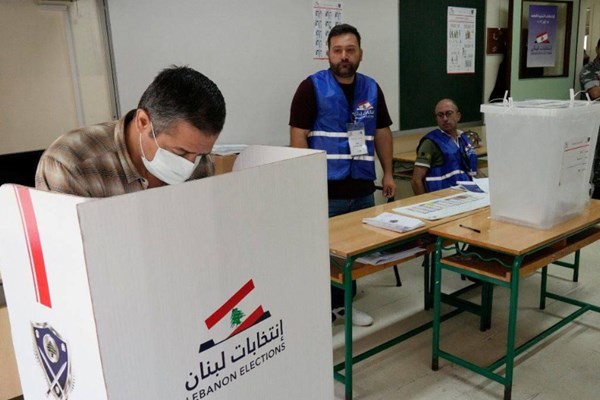Hossein Ajorloo in an interview with the site of Strategic Council on Foreign Relations stated:” in view of no party managed to gain the majority in the election, and concerning the political system of Lebanon in which governments are formed through political agreements among groups, it can be said even if one party wins the majority, there still exist political challenges”.
He continued:” in the last election, although Hezbollah won 71 seats, yet it faced challenges to form government. In the other word, no group or tribe can not be ignored. Therefore, no section of a political fraction can form a cabinet without the accompaniment of the opposite political fraction”.
Ajorloo emphasized that governments, in principle, are formed through coalition in Lebanon and almost all groups are present in a government.
According to the expert, the same rule applies in the recent election of Lebanon. Even if Hezbollah could win the majority (although Resistance groups continue to be the largest fraction), it should have formed the government, ultimately, with the accompaniment and agreement of other fractions.
Having stated that it seems the situation continues to be there for the time being, he added:” to settle the issue, all groups should stand by together, come to an agreement among themselves and form a government”.
The expert of the West Asia issues explained unlike many other countries, in Lebanon political decisions are characterized with a certain volatility; it means, even serious contenders, i.e. Hezbollah and Lebanese Ghovaat (military forces), may think similarly in an issue and vote for it. For example, concerning the election of President Michel Auon, all sides including Hezbollah, Sa’ad Hariri and Samir Geagea voted for him”.
He added:” in the meantime, on some issues within the same coalition, there may be allies who have different ideas and votes on an issue”.
Ajorloo stressed that in view of the volatility of votes in Lebanon, we should now adopt a wait and see policy how the situation will go on under different conditions, and how the agreements will be directed?”.
According to the expert, another issue that drew the attention in the last election was the arrival of a new fraction called Independents & Civil Groups with no political background. Therefore, one of the important issues to be dealt with is to see which party they will incline to and vote for?
Ajorloo continued:” the inclination of the new and independent players containing 27 persons will be decisive and can form a part of future decisions”.
The expert of the West Asia affairs commented about the political arena of Lebanon as:” political agreements in Lebanon come to fruition after internal dialogues as well as regional and international agreements”. Having referred that there are parties in Lebanon (with Western inclination) who were trying to win the majority, he said:” they intended to proceed with some essential decisions like disarming Hezbollah and Lebanon’s strategic system, but they failed to succeed in this field”.
Having emphasized that this inclination will not be successful in disarming Hezbollah, he explained:” as it faces serious obstacles, even a large number of independents and a part of civil society oppose disarming and deletion issue of Hezbollah as a national inclination”.
On the possibility of rising external interventions in Lebanon, specially, after holding the election, the expert said:” Lebanon has always been and continues to be the focal point of external interventions; the Islamic Republic of Iran is the only player whose influence in Lebanon is not considered as an intervention”.
He added:” the Islamic Republic of Iran has an ally in Lebanon who acts on the basis of sagacity and indigenous rules of game”.
Having underscored that other players like the embassy of Saudi Arabia or the U.S. embassy are strongly active in the internal affairs of Lebanon, he said:” now, after the election, these players will continue and even increase their interventions; but the political arena of Lebanon will only be directed towards disagreement and deadlock more the ever”.










0 Comments